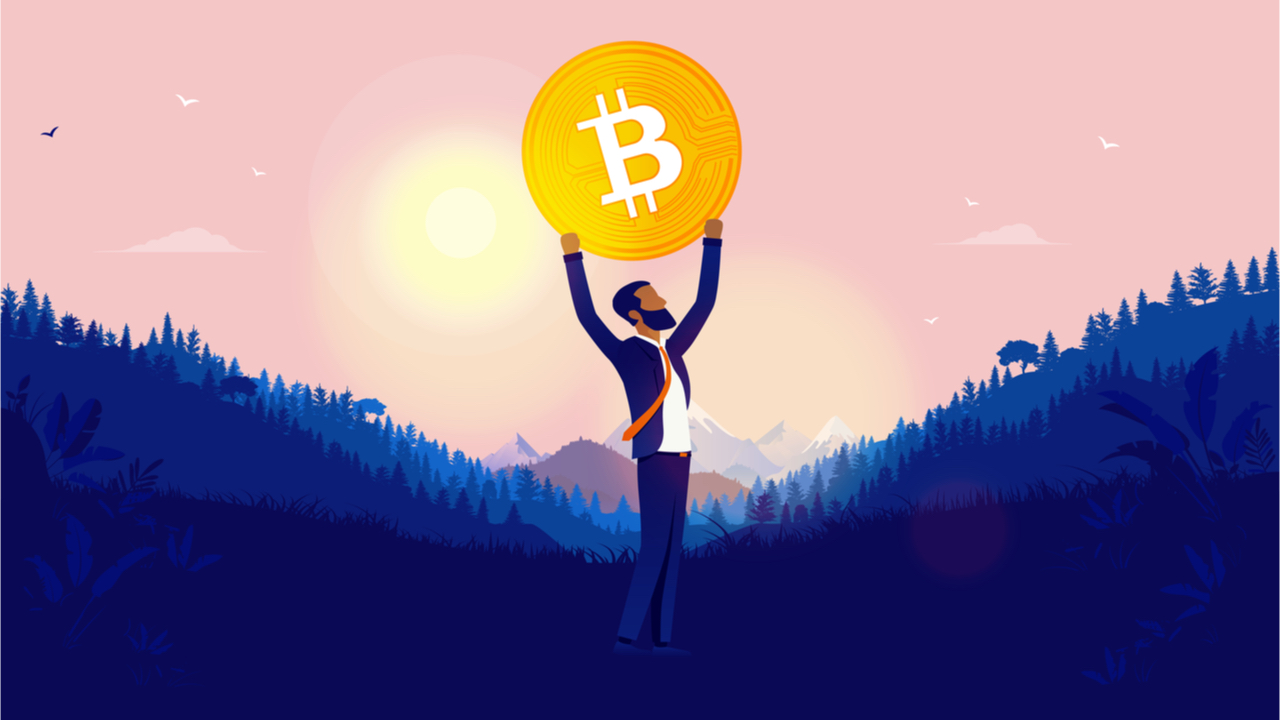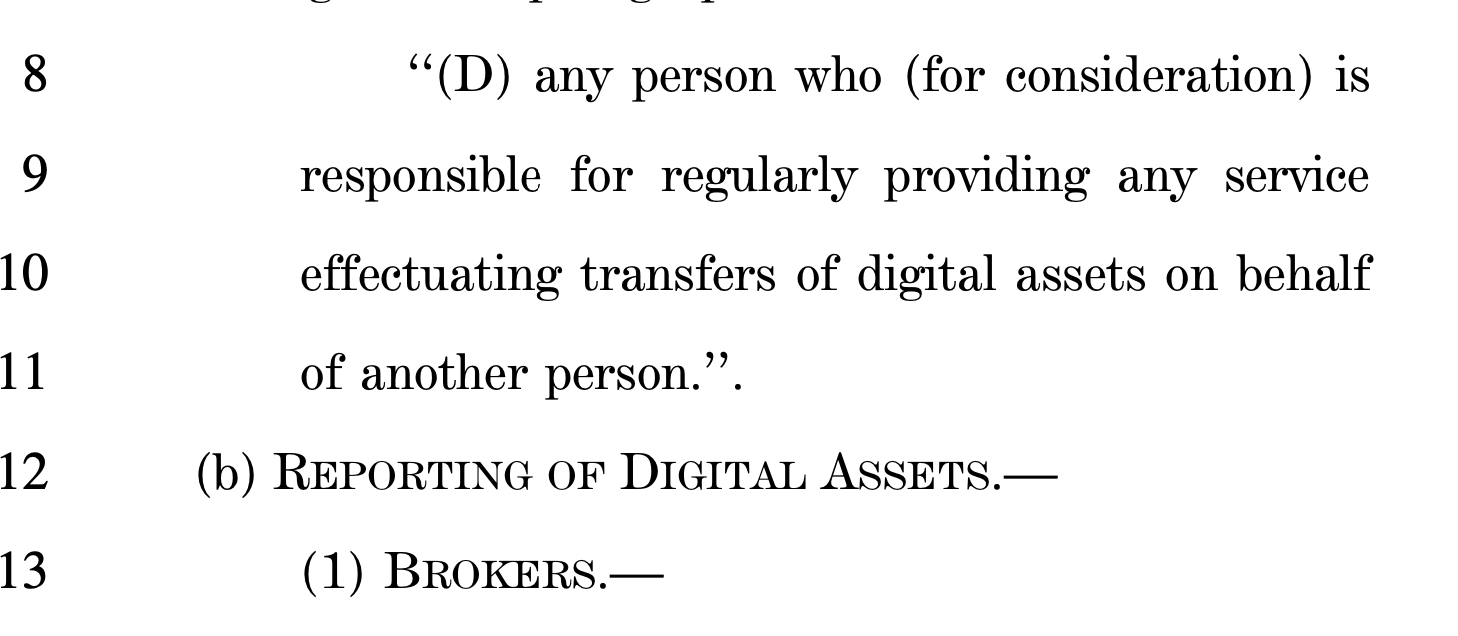
When Satoshi Nakamoto released the Bitcoin white paper in October 2008, it likely wasn’t with the idea that governments and central banks needed to recognize, adopt, and regulate Bitcoin for everyone’s benefit. To the contrary, if anything can be taken away from that document and the message encoded in the genesis block, it’s that centralized institutions need not have any place in our financial lives outside our freely chosen, express consent for them to do so.
Separating Money From the Church of Politics
“A purely peer-to-peer version of electronic cash would allow online payments to be sent directly from one party to another without going through a financial institution.”
“The Times 03/Jan/2009 Chancellor on brink of second bailout for banks”
-Bitcoin genesis block’s coinbase parameter message

In the same way it would be absurd for the Catholic Church — or any church for that matter — to violently force their beliefs on others via a government, it is the height of folly to believe that complete strangers involved in this collective abstraction called “the state” should be able to tell us how to spend our money, or be allowed to interfere with our private financial lives.
Imagine having a neighbor down the road demand you show them your wallet every day, and if the money ever exceeds a certain amount, you have to pay them a percentage — or else. And further, imagine there’s another neighbor down the road this first neighbor doesn’t like, with whom you are now prohibited from transacting. Even lending this friend five bucks, for example, could be strictly off-limits and come with brutally inhumane, violent consequences. Break these arbitrary rules and you will pay a hefty price in time, health, and money. The ostensible justification for all of this is that the nutty neighbor is just trying to protect you from bad actors.

Infrastructure Bill Shows Regulators Continue Sapping Bitcoin of Its Utility
This past week many in the crypto community have been in a tizzy over the new $1.2 trillion infrastructure bill that was just approved by the U.S. senate. The controversial legislation’s vague definition of who or what might constitute a cryptocurrency “broker” has individual crypto asset holders, node operators, app developers, miners, and major corporate players in the industry saying that if this thing goes through, innovation will quickly flee the draconian U.S. for friendlier and more open-minded crypto shores.
Technically, the verbiage of the massive 2,702-page bill could even classify someone who merely facilitates trades of crypto and fiat for a friend regularly as a “broker” responsible for reporting to the IRS. And we all know what happens if you raise the hackles of those weird neighbors. They’ll show no mercy, and even eat their own. That’s not to mention that for most of the concerned parties the logistics of said invasive reporting would be virtually impossible, anyway.

The strangers down the road peopling the large edifices in D.C. take on much greater importance to most than the aforementioned crazy neighbor in the example. People generally have an idea that these strangers in government edifices across the globe are somehow special. Exempt from the common morality and justice we expect from our neighbors. They are gods, well within their rights to arbitrarily decide how money may or may not be used. With or without your consent.
Here is a tragedy: an alarming number of crypto enthusiasts are ready and willing to let these suited strangers in D.C. determine their financial fates, and even go so far as to beg and plead them to please show mercy and favor regarding their own personal finances.
Perhaps this isn’t the place to get into the “but that’s just how it is, that’s how society is set up” objections here, because this article would become far too long. Suffice to say, there are ultimately two roads we can go down regarding crypto: live and let live via voluntary consent, or violent force against peaceful people. The latter is the lazy and so-called “pragmatic” path, but this pragmatism sure has led to a whole lot of heartbreak and tragedy. And that’s got to be the biggest understatement in all of recorded history.

The Scapegoating of Bitcoin: Climate Change, Terror, and Money Laundering
With this new U.S. infrastructure bill (now moved to the House of Representatives which is on recess until September 20), the EU’s plans to track all bitcoin transactions and ban anonymous wallets, the massive momentum CBDCs are gaining worldwide as countries responsible for 90% of the world’s GDP research and trial them — it is clear we are on the cusp of something unprecedented. Even the sacred realm of decentralized finance (defi) is no longer safe, with U.S. Securities and Exchange Commission Chairman Gary Gensler recently calling for more authority to regulate decentralized finance.
Contrary to Satoshi’s vision for peer-to-peer electronic cash without the need for a financial institution, the picture taking shape is one instead of complete, centralized, coercive control of private finance. Privacy and autonomy in money, in other words, are being made out as relics to be traded in for antiquated ideas of kings ruling peasants, disguised as modern and sensible “regulation.”

In lockstep with a discrepancy-riddled narrative about a deadly virus, we find a new virus growing ever stronger: a mutant strain of unapologetic economic surveillance and the invasive co-opting and destruction of useful and groundbreaking financial technologies for individuals everywhere in real, dire need of economic freedom. The supposed justification given for this is that Bitcoin is economically dangerous, bad for the environment, and used by criminals. In psychology, this is what is called “projection.”
But the cold, hard realities remain:
- Terror and destruction of the earth are the specialty of the state, not internet money.
- Destruction of economies and livelihoods is the specialty of the state. Permissionless internet money is saving people from government folly.
- Statistically, almost all financial crimes are still conducted in fiat currencies. There is no contest. Reports for 2020 show that crimes in fiat were estimated to account for $1.4 trillion dollars. The same estimates put crypto crime at about $10.5 billion.
- Slavery and stealing are wrong, no matter what form they take, or how stylish they are made out to be.
I will get to the slavery part at the very end. Suffice to say that although democracy is given endless lip service by politicians, the individuals’ representative government is meant to comprise are becoming increasingly voiceless. Some advocate from a well-intentioned place that we politely ask these dangerous neighbors of ours in D.C. to change things. But when the channels for change themselves are foundationally corrupted, no amount of pleading will ultimately do us any good. Luckily, crypto doesn’t require political permission.
We need an unanimous vote on the NEW compromise crypto provision. Call your Senator NOW.
Ask them to support the Toomey-Lummis-Warner compromise crypto amendment, to ensure we don't dramatically expand financial surveillance & harm innovation.
517-200-9518
It takes 30 secs. pic.twitter.com/23tUIh2LP2
— Naomi Brockwell (@naomibrockwell) August 9, 2021
How to Experience Crypto Freedom Right Now
In three words: just use it.
Pay for things. Tip your friends. Invest it. Keep it in non-custodial wallets. Buy it from people face-to-face or online. Conceal it from immoral and privacy-invasive institutions and governments. Ignore them. Build a hugely successful start-up. Or do none of these things. Do everything completely in line with legacy finance models or anything in between. I do not care. The difference is I will never try to violently attack you or cage you if you don’t do things my preferred way. That’s government’s game.
There is now serious risk to doing even peaceful, completely moral things without permission in our current paradigm. This says a lot about the state of the world. And while it may not be advisable for everyone to run headlong into the offices of the IRS shouting they will never pay them a dime again, without direct, permissionless economic action, crypto’s utility is all but lost.
“Just use a credit card, bro.” “Just use a CBDC.” “Just do the KYC thing so the number keeps going up.” “Sure, bro, we can no longer use crypto freely and need to report everything. Sure, its utility has been stripped away. But I’m going to be rich.”

Yes, you’ll be rich alright — in a bleak, dystopian, locked-down world that’s not even worth living in, anyway. Maybe you can spend your fortune on something to help improve your social credit score so you’ll have a chance at flying out of the country for a vacation next year.
No, money is a tool to help us enjoy our lives. And without economic freedom, there can be no such enjoyment of life’s ups and downs, no love or adventure and fun. Many folks in the cryptocurrency community these days seem to have little to no understanding of what this freedom really is. But for those that do, the philosophical battle is worth fighting, even if it ends up costing us dearly. That may seem paradoxical on the surface, but it’s not. The battle may be lost, but the war is already won. The idea’s already out, and that’s what matters most.
“Number go up” is thus very exciting for one reason: it means greater access to tools, opportunities, and leverage to make the world a more happy and free place:
To say these goals — maximal peace, economic freedom, and non-violation of the non-violent — are “utopian” or unworkable because the present system finally holds no water. It’s tantamount to saying years ago that because farming relies on slave labor, we cannot change things. This is a lazy excuse. Satoshi Nakamoto pushed things forward and helped evolve finance into a much freer place. If money can evolve in such a way, so can societies across the globe.
Personally, whether I win or lose in my lifetime is not what is most important to me right now. I’m happy because the idea is here, because I can fight for it, and because I can use crypto however I damn well please, right here, and right now. To me, this is about human dignity. Hopefully, my son’s generation and those after him can laugh in disbelief at how silly this whole tragic clown show has become. And slough off the religion of politics for a free economy.
What are your thoughts on the new U.S. infrastructure bill as it relates to Satoshi Nakamoto’s white paper? Let us know in the comments section below.
Comments
Post a Comment